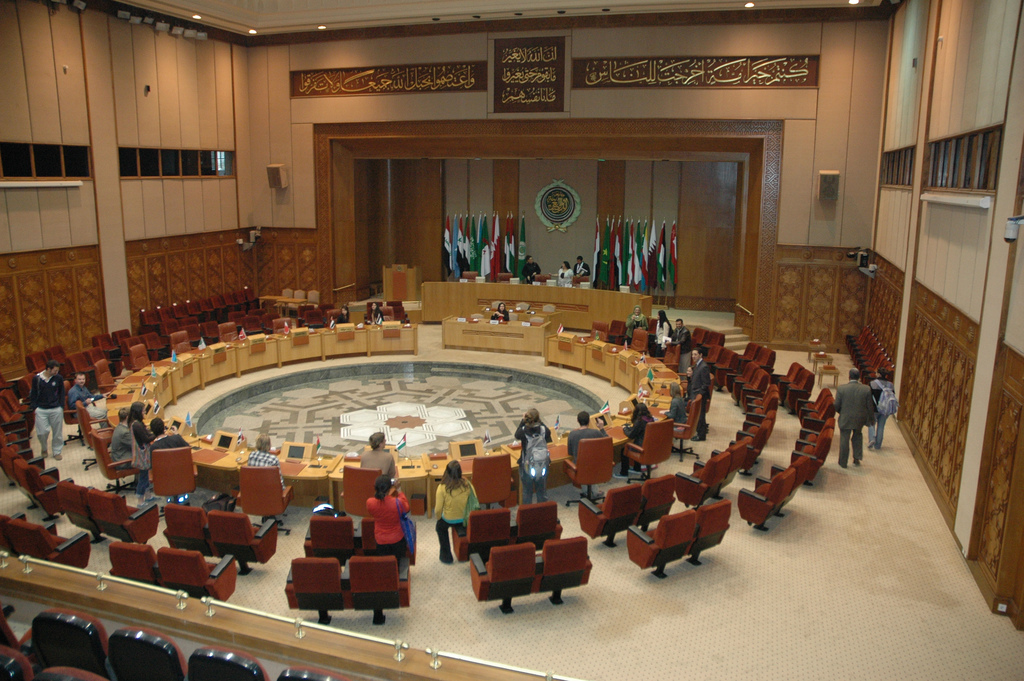In a rare sight this Monday, His Royal Highness Prince Turki bin Saud al-Faisal, former Saudi Arabian Ambassador to the United States and Dan Meridor, former Deputy Prime Minister of Israel, addressed a public audience together at Harvard University’s Kennedy School of Government. The former statesmen discussed instability in the Middle East, potential areas for regional cooperation, the Israeli-Palestinian conflict and nuclear proliferation.
HRH Prince Turki opened the discussion by noting that for years, the international community has been more concerned with managing, rather than resolving crises in the Middle East. Reflecting recent Saudi frustration with U.S. leadership in the region, he lamented the failure of the international community to put an end to the killing in Syria. Instead, he said, “People are trying to take advantage. It’s as if [they’re] scoring points in a tennis match, rather than concluding the match.” In an implicit criticism of the United States’ focus on the Islamic State of Iraq and the Levant (ISIL) and inaction against Syrian President Bashar al-Assad, he argued that “Daesh (the Arabic acronym for ISIL) is a symptom – not the disease…Fix Damascus and you can eliminate Daesh.”
Mr. Meridor took a more regional approach to the upheaval in the Middle East. The Middle East, he stated, is in the midst of a “major political, historical revolution.” Arguing that non-state actors are collapsing the pre-existing state system, he called for “dramatic steps” to deal with new regional threats and opportunities, including greater cooperation between Israel, Saudi Arabia, Egypt and Jordan to combat destabilizing forces like Iran and ISIL. Forming an alternative axis to the “Axis of Evil” – a term coined by former U.S. President George W. Bush in 2002 to describe WMD-seeking state sponsors of terror – would demonstrate to protesters in Cairo and Damascus that there are others who stand for stability and normalcy, he argued.
Though more cautious in his language, HRH Prince Turki also seemed to favor expanded regional cooperation. However, he argued, there are “dramatic steps” that Israel should take to pave the way for such cooperation. He proposed that Israel sign the Nuclear Non-Proliferation Treaty (NPT) and open its nuclear facilities to International Atomic Energy Agency (IAEA) inspection, as the international community is demanding of Iran. He also pressed for Israel to resolve the ongoing conflict with the Palestinians.
On the latter issue, both speakers called on Israel to seriously consider the Arab Peace Initiative (API), which Mr. Meridor called “the most advanced Arab position ever proposed to us.” First proposed by King Abdullah Bin Abdullaziz
of Saudi Arabia at the 2002 Beirut summit of the Arab League, the API calls for full Israeli withdrawal from all Arab territories occupied since June 1967 in exchange for normalized relations with 56 Muslim states, including 22 Arab states. Largely perceived by the Israeli government at the time as an all-or-nothing dictate, two clauses in particular – one calling for East Jerusalem as the capital of an independent Palestinian state and the other for recognition of the Palestinian ‘right of return’ – sunk the proposal. In a 2013 press conference with U.S. Secretary of State John Kerry however, Qatari Prime Minister Hamad bin Jassim al-Thani, flanked by representatives from the Arab League, Saudi Arabia, Lebanon, Egypt, Bahrain, Jordan and the Palestinian Authority, announced that the Arabs would also support “comparable, mutually agreed, and minor” land swaps. This announcement brought the API one step closer to the Israeli and American positions on the two-state solution and signaled its potential as a starting point for negotiations. Significantly, HRH Prince Turki seemed to underline this last point, telling Israel to “Just say yes…Then you can put whatever conditions [on it]. But get us sitting together.”
But Mr. Meridor also added his voice to a growing Israeli movement for coordinated unilateral action. If the two sides cannot reach an agreement, Mr. Meridor argued, Israel should not “sit on [its] hands and do nothing.” He called on Israel to take some steps now, including limiting its settlement activities to areas that Israel will likely retain as part of any two-state agreement, transferring authority to Palestinians in other locations and beginning to delineate a potential border. “Move to create a better atmosphere for cooperation in the area against the real threats,” he argued.
On the implications of the Iranian nuclear program for regional nuclear proliferation, there was little daylight between the two speakers. Reminding the audience that he does not speak for his government, HRH Prince Turki stated that whatever level of indigenous uranium enrichment the P5+1 allows Iran, “immediately…not only Saudi Arabia, but countries in the Middle East and outside the Middle East are going to demand to have the same opportunity to enrich uranium.” Mr. Meridor underscored the dangers of nuclear proliferation in a world where “some people [think they have] direct lines to Almighty.” For this reason, he argued, the military option must remain on the table. If the world begins to believe Iranian allegations of American weakness, he argued, “It will change not only the Middle East, but the standing of America in the world.
